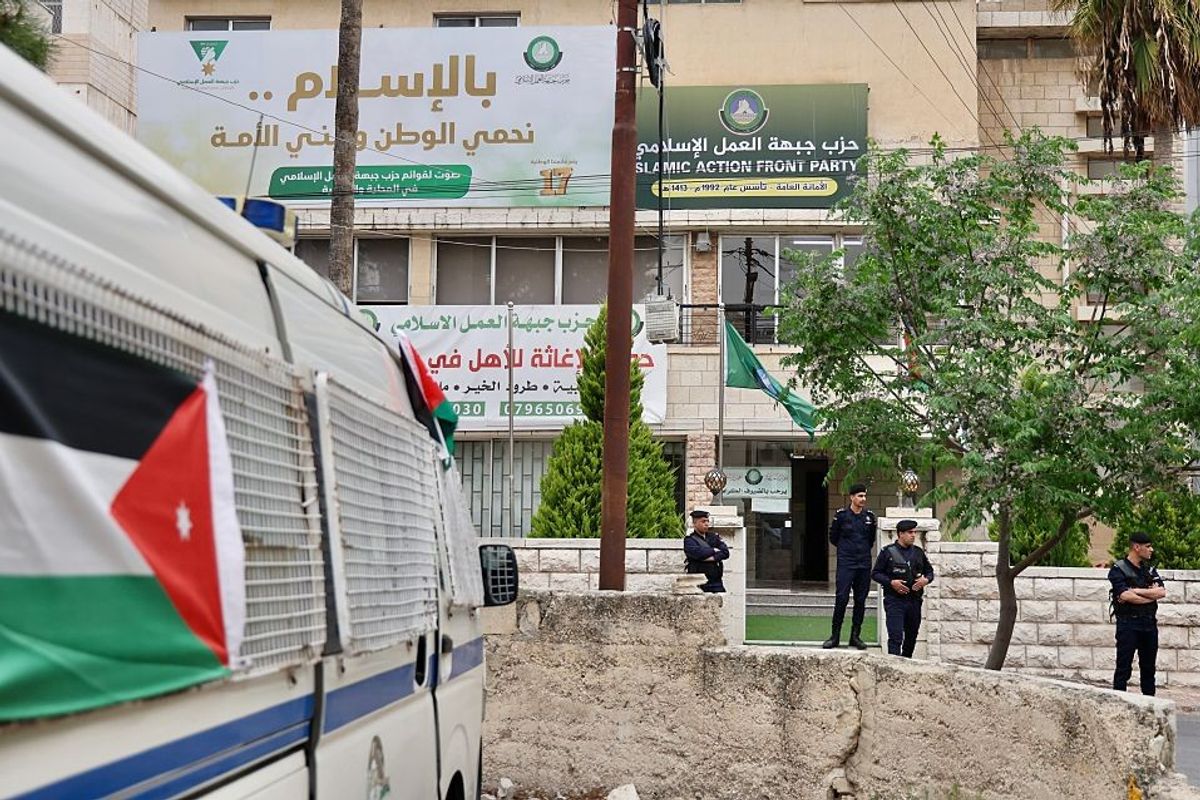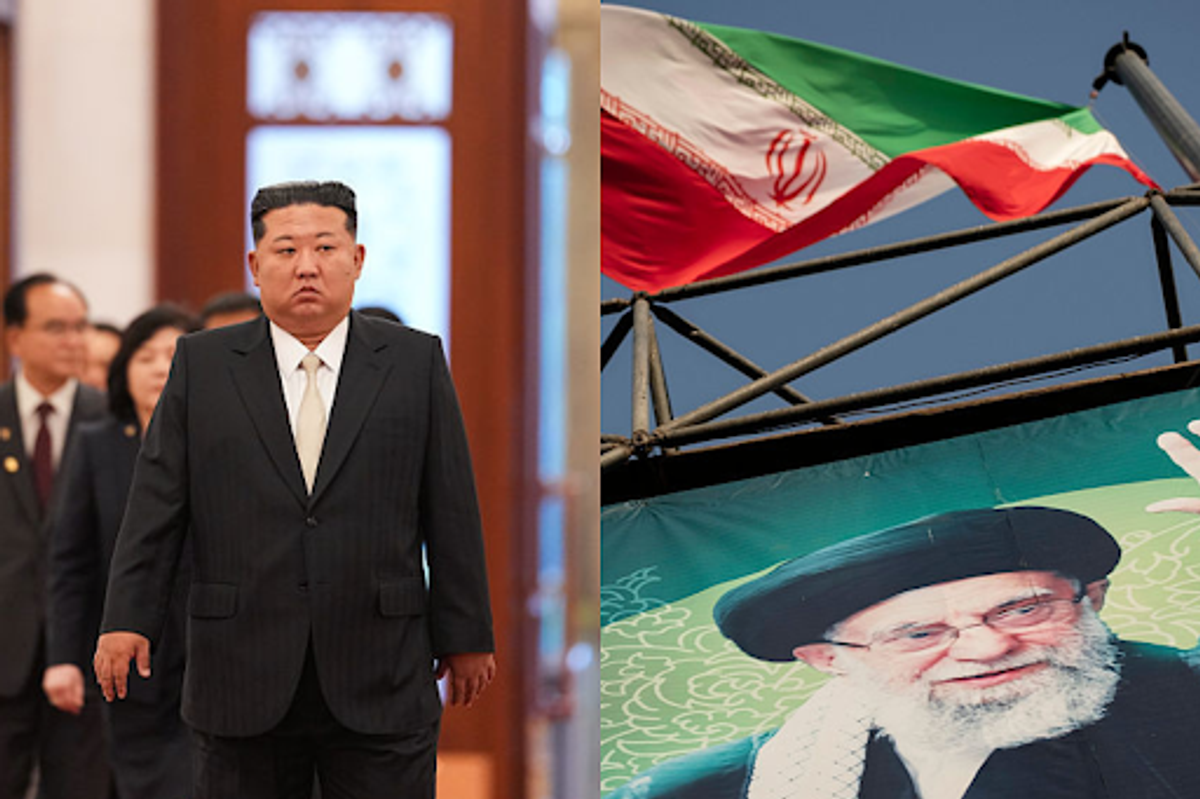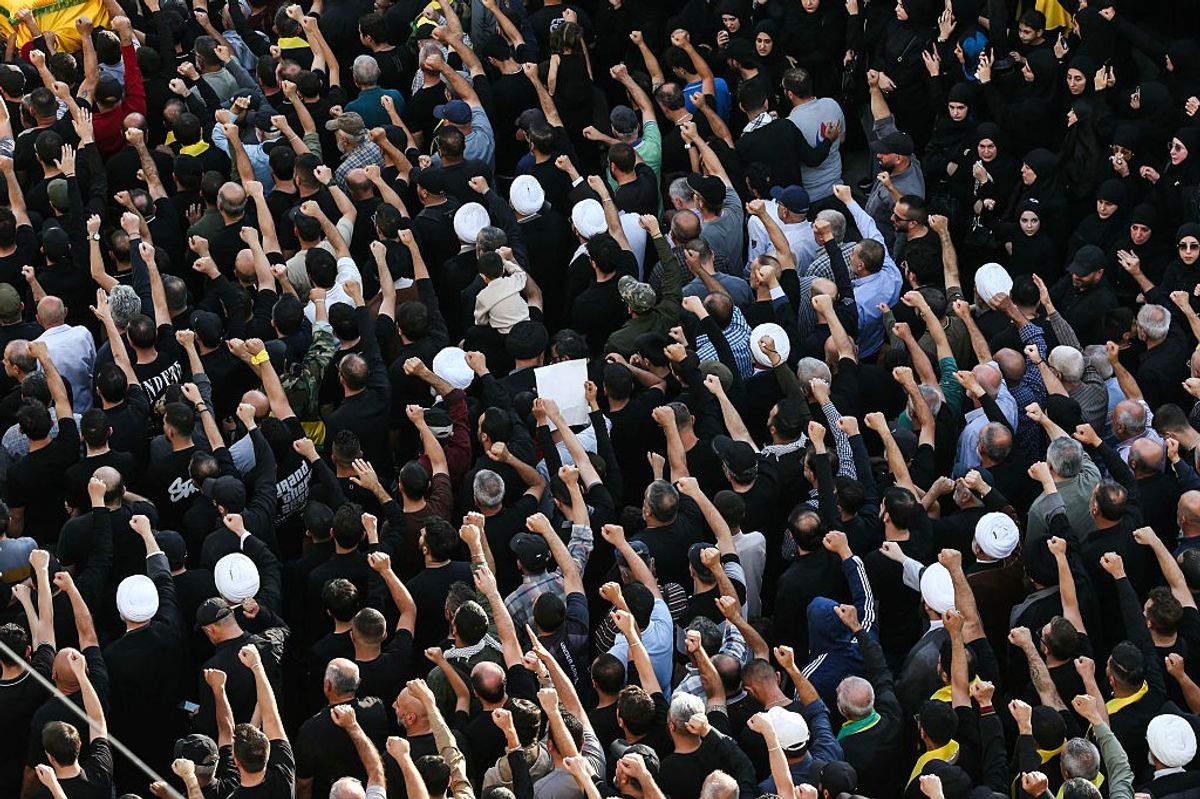DEEP DIVE — Exploding beepers and walkie-talkies have killed and maimed Hezbollah operatives, air strikes have taken out top commanders, and hundreds of aerial bombardments have destroyed missile launch sites belonging to the militant group. In a single week, Israel has dealt a punishing blow to Hezbollah, the Iranian-financed Shia army that controls southern Lebanon and that has, since the day after the October 7 attack on Israel by Hamas in Gaza, regularly bombarded Israel’s northern border regions.
The Israeli airstrikes have hit hundreds of targets, demolishing medium-range rockets, cruise missiles and drones, and workshops where Hezbollah was said to add precision guidance systems to its homemade missiles. Those exploding beepers and walkie-talkies killed at least 37 people, mostly Hezbollah members, and left nearly 300 Hezbollah officials, as well as Iran’s ambassador to Lebanon, seriously injured, the Lebanese Health Ministry said. Israel claimed to have killed 10 Hezbollah commanders in a single airstrike, including the leader of the Radwan force, Hezbollah’s special foorces unit.
The Israeli strikes have also killed civilians, including at least 50 children and 94 women, and wounded nearly 2,000 others, according to Lebanon’s Health Ministry. Israel’s military spokesman Rear Adm. Dan Hagari said his country was “striking hard” against Hezbollah because it wants the operation in Lebanon to be “as short as possible.”
Some Israeli officials spoke of a strategy of “de-escalation through escalation,” arguing that a heavy assault on Hezbollah would convince the group to hold fire, while degrading its arsenal in the process.
“We must continue until we achieve our goal — to ensure the safe return of Israel’s northern residents to their homes,” Israeli Defense Minister Yoav Gallant said Tuesday. Prime Minister Benjamin Netanyahu said Israel would continue “inflicting blows on Hezbollah” until all those displaced Israelis – some 70,000 of them – can come home.
The Israeli statements raise fundamental questions about the mission, and the new front in Israel’s war: What would it take to make it safe for those Israelis to return to their homes in the north? And how long might it take to accomplish the mission?
The Hezbollah arsenal
Before last week, it was estimated that Hezbollah had at least 150,000 missiles, some 30,000 men under arms, and a reserve of another 20,000 to 50,000 forces. The missiles include short-range homemade varieties, and more sophisticated precision-guided weapons from Iran, such as the one fired Wednesday at Tel Aviv (it was destroyed by Israeli air defenses). The Hezbollah arsenal even includes some U.S.-made Stinger anti-aircraft missiles, likely transferred from Lebanese Army stocks, according to a 2021 report by the northern Israel-based Alma research organization.
It’s a weapons stockpile that has grown steadily since the last major Israeli campaign in 2006, thanks primarily to the largesse of Iran.
Will Israeli attacks make northern Israel safe?
The rhetoric about the Israeli operation in Lebanon differs from what top officials have said about the Gaza war; while Israel’s stated aim in Gaza has been to destroy Hamas and bring the hostages home, the mission in Lebanon is – as Gallant, the defense minister, said – to degrade Hezbollah’s capability and make northern Israel safe enough for residents to return to their homes.
It’s a less precise mission, open to different definitions – which may help explain why experts are divided on its chances for success.
“Israel has delivered a very significant blow to Hezbollah, with the exploding pagers and walkie-talkies and all that,” Bruce Reidel, a senior fellow at the Brookings Institution and a former CIA operations officer in Israel and Lebanon, told The Cipher Brief. “But it doesn’t really change the fundamentals.”
Those fundamentals involve Hezbollah’s surviving stock of missiles, rockets and drones that can still launch devastating attacks on northern Israel, potentially overwhelming its air defenses and making it impossible for Israelis to live in the region.
”The fundamental balance of terror has not been changed here,” Reidel added in an interview with The Cipher Brief.
Reidel and others believe far more carnage – and perhaps a long Israeli war in Lebanon – might be needed to alter that “fundamental balance.”
"Even if 50 percent of the organization's launch capacity has been destroyed, that still leaves it with more than 100,000 rockets and missiles that are ready to launch at the home front in Israel,” an unidentified Israeli army official told the newspaper Haaretz on Tuesday. “That's something that cannot be minimized."
But other experts believe the current operation can bring major dividends for Israel.
Assaf Orion, a retired Israeli brigadier general and former head of strategic planning for the IDF General Staff, where he dealt extensively with Lebanon, counters that any degradation of Hezbollah forces is a win for Israel.
“We are in the business of depriving them [of] or degrading seriously their capability to seriously threaten us on a wide scale,” Orion told The Cipher Brief. “If you take the factories out, like we did in Gaza or an underground production facility like we did in Syria,” it is worth it, he said. “There are hardly any rockets flying from Gaza these days.”
Orion suggested that Israel is taking a page from the Old Testament. “What Israel is currently doing seems to be like Moses’ dialogue with Pharoah, saying ‘Let my people go back home safely,’ and if you’re not convinced, well, these are my 10 plagues: First we go after your pagers, then your [walkie-talkies],” he said, then the top leaders, and then the missile sites.
“The logic of the launch of this sequence was to exert pressure on Hezbollah to separate itself from the Hamas situation, to stop its attacks on Israel regardless of what’s happening in Gaza and to withdraw its forces northward from our border,” said Orion.
He believes Israel’s strategy is working: “We have to look at the dog that doesn’t bark,” Orion said, noting that despite some saber-rattling, Hezbollah has not responded with all-out war.
A ground war?
Among many questions surrounding the current Israeli operation, one stands above the rest: Will an invasion come next?
In the case of Gaza after the October 7 Hamas massacre, the answer was clear: Hamas could not be “destroyed” from the air, and so a ground operation – however dangerous for Israeli forces and calamitous for civilians in Gaza – was deemed necessary. The stated mission in the Hezbollah campaign makes the ground war decision less obvious. As does the fact that such a choice would mean simultaneous Israeli ground wars in Gaza and Lebanon, along with sporadic but significant military operations in the Palestinian West Bank.
But the signs are that a ground war looms. On Wednesday, Israel Defense Forces Chief of Staff Lt. Gen. Herzi Halevi told troops on Israel’s northern border that the latest Israeli airstrikes were carried out “both to prepare the ground for your possible entry,” referring to a potential ground operation, “and to continue degrading Hezbollah.” And the head of Israel’s northern command, Maj. Gen. Ori Gordin, said Israel had “entered a new phase of the campaign” against Hezbollah and “must be fully prepared for maneuvers,” a term that Israel often uses to refer to ground operations.
The last major Israeli ground war with Hezbollah was fought in 2006, and ended with a U.N. resolution that saw Israel withdraw from southern Lebanon and Hezbollah pledge to keep its forces north of Lebanon’s Litani River, which runs between two and 20 miles from the Israeli border. Since then, Hezbollah has violated that agreement repeatedly.
Experts also note that as a political player in Lebanon, and the de facto government in Southern Lebanon, Hezbollah cannot be displaced by military means alone; for that, an end to its military and political support from Iran and Beirut would be needed.
Hezbollah, Reidel said, is “a political party that is represented in the Lebanese parliament, there are hospitals and schools that are run by Hezbollah. It's a state within the state that's more powerful than the Lebanese state.”
The best Israel can hope for in a ground campaign may be to push Hezbollah’s ground forces north of the Litani, and to reach a ceasefire arrangement that keeps Hezbollah is further away, less powerful as a military force, and generally deterred from shelling Israel.
Meanwhile, if Israel does invade, Hezbollah may face significant communications problems, given the damage done by the pager and walkie-talkie explosions. Hezbollah’s leaders have ruled out cell phone use, given how mobile networks can be tracked, which means that beyond the demoralizing effect of last week’s remotely-triggered blasts, Hezbollah operatives are likely scrambling for alternative ways of communicating.
“This leaves [Hezbollah] with few remaining options beyond couriers,” Norman Roule, a 34-year CIA veteran who worked on Iran, told The Cipher Brief. “This is bound to impact the group’s effectiveness as it struggles to identify a means to restore efficient and secure command and control in wartime conditions.”
The pager attacks “add an aura of uncertainty, and isolates the senior leadership” of Hezbollah, said Raphael Cohen, senior political scientist at the RAND research institute. Israel also hacked into radio stations in Lebanon, urging residents of the south to move away from suspected missile launch sites. That directive sent thousands of civilians clogging the roads north to Beirut, further hampering the ability of Hezbollahs’ 30,000 or more troops to operate in the south.
Ultimately, Cohen told The Cipher Brief, “a win for Israel would be Hezbollah stops the shelling, and moves its forces back north of the Litani River, in accordance with UN Security Council Resolution 1701.” The message of the current Israeli operations, Cohen added, is “signal to Hezbollah: ‘Do you really want to link arms with Hamas, and go to meet your maker, or do you want to choose a different path?’”
Ground war or not, the Israeli attacks against Hezbollah may not end soon – and for the moment at least, northern Israel is as dangerous as ever. And those 70,000 Israelis who live there aren’t likely to be back in their homes anytime soon.
Read more expert-driven national security insights, perspective and analysis in The Cipher Brief.
It’s not just for the President anymore. Cipher Brief Subscriber+Members have access to their own Open Source Daily Brief, keeping you up to date on global events impacting national security. It pays to be a Subscriber+Member.














